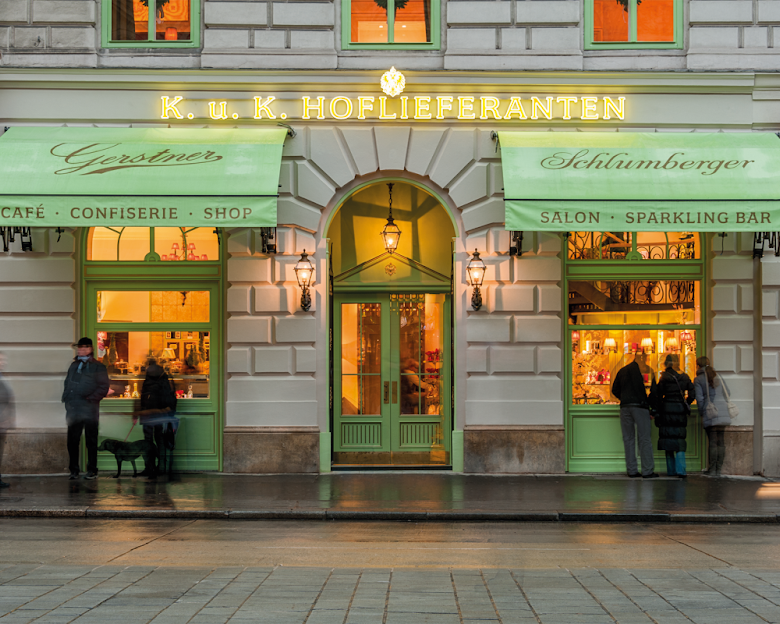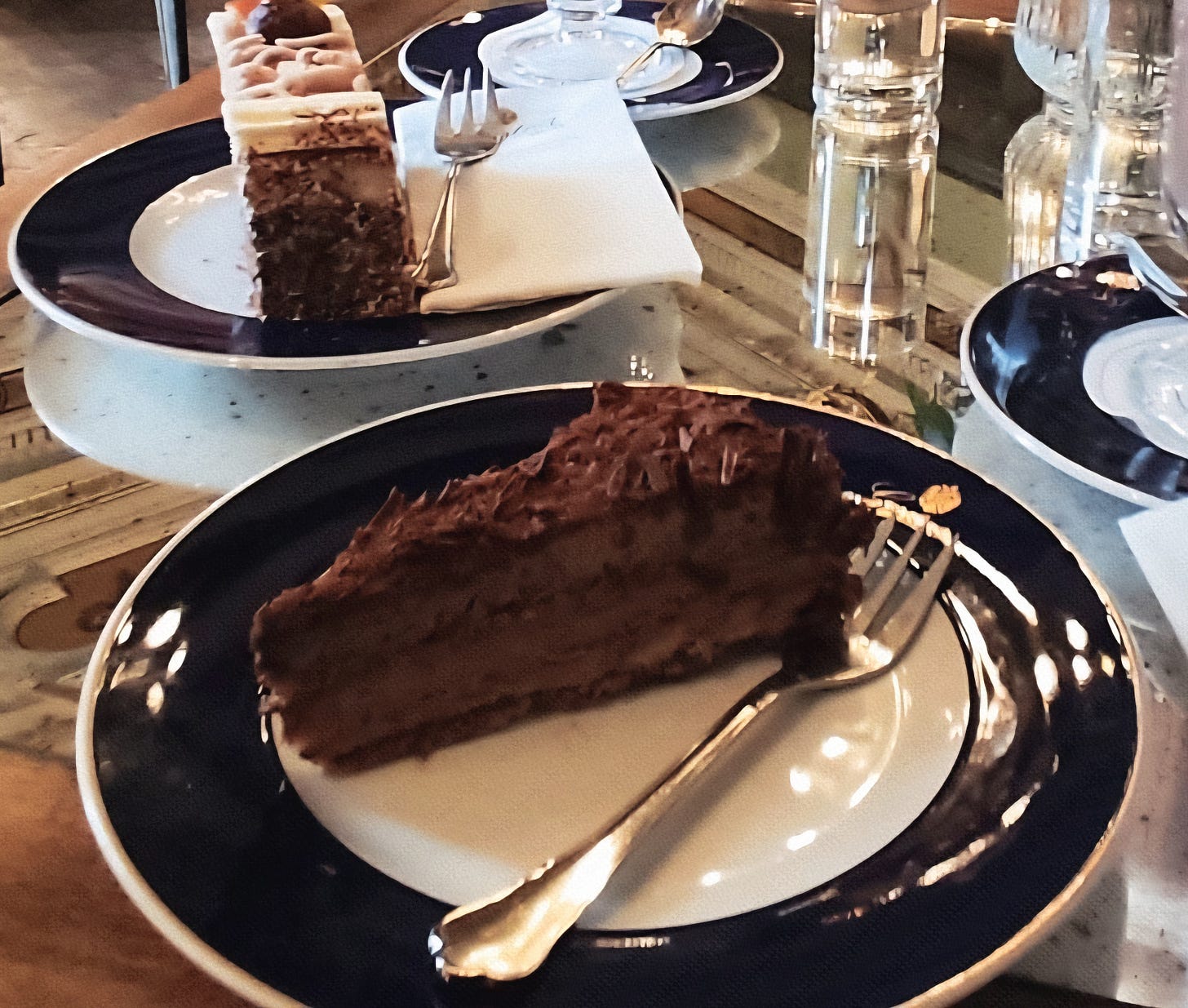Vienna’s was gray and dry, the sky low and metallic—like a lid waiting to slam shut. I stood outside Café Gerstner, just across from the State Opera, trying to stay calm. I was supposed to meet Mussayev out front. I wanted to be in a place where I could see him coming.
Inside, my photographer Lukas was pretending to study the ice cream display. His role: blend in, keep watch, act like it was just another Monday night in a city built on secrets.
A minute later, he stepped outside.
“I thaw him. He’th here,” Lukas lisped. “They went upstairth.”
No warning. No message. Just like that—he was inside. I followed immediately.
Up the stairs to the second floor, past the cake displays and porcelain cups, I spotted him on the next set of stairs. Alnur Mussayev. One step above me, heading to the third floor. Dark suit, clean lines. His translator beside him, dressed the same way. No entourage. No security. Just presence.
I stopped him. Shook his hand right there on the staircase.
He looked at me with quiet focus. Not warmth. Not suspicion. Just curiosity—like he was sizing up the kind of man who crosses an ocean to ask dangerous questions over dessert.
On the third floor, we were seated at a small private table by the window. Gold trim. Chandeliers. Important people whispering over strudel. The room felt too ornate for what we were about to say.
The translator spoke first—soft-spoken, polite, but with that strange confidence of someone who had done this before. He laid out the rules.
Ninety minutes. That’s all. He was only there to translate. No explanation. No spin. No commentary.
Then, before we spoke another word, he asked if I wanted dessert.
I said I’d follow their lead.
The waiter returned with three slices. Each one different. Mine was chocolate, dense and rich, with a glossy surface that looked like it had been brushed by a jeweler. The fork sank in with resistance. Layers of dark chocolate, spiced cake, maybe a hint of clove or orange zest. I took a bite, nodded politely, and spent the next forty minutes barely touching the rest.
The waiter came back and refilled our water. Glass pitchers. No rush. He didn’t hover. He didn’t linger. Just a nod, a pour, and gone again. A brief clink of glassware. One of those moments that felt wildly out of place—this silent ballet of hospitality inside a conversation that could change everything.
I thanked them for meeting. The translator relayed it. Mussayev nodded. No small talk. No posing. So I got to the point.
“What do you want the American people to know?”
He didn’t blink. He leaned back slightly, folded his hands, and began to speak—in Russian.
Every time he spoke, I kept my eyes locked on his. I wasn’t watching the translator. I wasn’t even listening to him yet. I was watching Mussayev—his expression, his pacing, the weight of each pause. Only after he finished would I turn to the translator, like a second beat in a slow ritual.
He said he was concerned—for America. For us. The way the system was bending. The way the public was being lulled. Then he pivoted.
“What do you think Trump wants?” the translator asked me, on his behalf.
I answered: control. Worship. Sure, money—but mostly obedience. The same model Putin perfected. One voice. One throne. Everyone else: background noise. I said I believed Trump’s criticism of Russia was a lie—performance for those still clinging to illusion.
Mussayev nodded, then responded again in Russian. Again, I watched only him. The translator waited until he was done, then spoke in calm, careful English.
He agreed that Trump wants power—absolute, unchecked power. But he added something darker: even if the Supreme Court actually upholds the Constitution and blocks him from serving a third term, it won’t matter. Because whoever comes next will already be shaped by the same forces. “Trumpism,” the translator called it. Not a candidate. An infection.
This wasn’t a man speculating. It wasn’t academic. It was someone who had seen what happens when a republic decays from within—and how fast the world forgets what it once was.
I asked about the codename.
There was a pause, but not long. Then he answered—directly.
Krasnov.
No hesitation. No dodging. He spoke about Trump’s 1987 visit to Moscow not as a footnote but as a milestone—a step in a larger playbook. It wasn’t a business trip. It was part of a long, careful process. And it worked.
Then, softly, like a thread he wasn’t ready to pull, he said there was more.
New information—just not shareable yet. But it existed. And he promised he would share it, as soon as he could.
There was no fear in his voice. No performance. Just quiet certainty.
Like a man who already knows how the next chapter ends—and is simply waiting for the timing to be right.
He didn’t need to convince me.
He didn’t need to prove it.
He just needed me to know it was coming.
And somehow, that was worse.
I looked down at the rest of my chocolate cake. The fork was cold in my hand.
And I hadn’t even asked the hard questions yet.
This post has been syndicated from Closer to the Edge, where it was published under this address.


